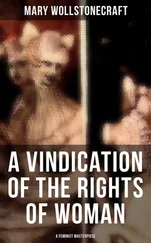Andrea Dworkin - The Political Memoir of a Feminist Militant
Здесь есть возможность читать онлайн «Andrea Dworkin - The Political Memoir of a Feminist Militant» весь текст электронной книги совершенно бесплатно (целиком полную версию без сокращений). В некоторых случаях можно слушать аудио, скачать через торрент в формате fb2 и присутствует краткое содержание. Жанр: Публицистика, на английском языке. Описание произведения, (предисловие) а так же отзывы посетителей доступны на портале библиотеки ЛибКат.
- Название:The Political Memoir of a Feminist Militant
- Автор:
- Жанр:
- Год:неизвестен
- ISBN:нет данных
- Рейтинг книги:4 / 5. Голосов: 1
-
Избранное:Добавить в избранное
- Отзывы:
-
Ваша оценка:
- 80
- 1
- 2
- 3
- 4
- 5
The Political Memoir of a Feminist Militant: краткое содержание, описание и аннотация
Предлагаем к чтению аннотацию, описание, краткое содержание или предисловие (зависит от того, что написал сам автор книги «The Political Memoir of a Feminist Militant»). Если вы не нашли необходимую информацию о книге — напишите в комментариях, мы постараемся отыскать её.
The Political Memoir of a Feminist Militant — читать онлайн бесплатно полную книгу (весь текст) целиком
Ниже представлен текст книги, разбитый по страницам. Система сохранения места последней прочитанной страницы, позволяет с удобством читать онлайн бесплатно книгу «The Political Memoir of a Feminist Militant», без необходимости каждый раз заново искать на чём Вы остановились. Поставьте закладку, и сможете в любой момент перейти на страницу, на которой закончили чтение.
Интервал:
Закладка:
illegitimate authority, expressed in my world by adults, and
find a church. Books were my church but even more my native
land, my place of refuge, my DP camp. I was an exile early on,
but exile welcomed me; it was where I belonged.
35


The Fight
I loved Al en Ginsberg with the passion that only a teenager
knows, but that passion did not end when adolescence did. I
sent him poems when I was in high school and barely
breathed until I heard back from him. He critiqued the poems
I sent on a postcard that I got about three weeks later, though
it seemed like ten years. I thought I would die - he acknowledged me as if I were a writer and we lived in the same world.
In col ege I went to every reading of his that I could. My heart
breathed with his, or so I thought, but I was too shy ever to
introduce myself to him or hang around him until the one
reading after which I did introduce myself. “Call me, ” he said
to me a half dozen times as I was walking backward out of the
large room, backward so that he could keep talking to me.
“Cal me, ” he had said, “but don’t come to New York just to
cal me or you’l drive me mad. ” He had scribbled his phone
number on a piece of paper. “Call me, ” he repeated over and
over. I could have happily died then and there.
I did go to New York just to see him, but when I got to
New York I was too shy to cal him. I'd spend every waking
hour worrying about how to make the cal . I picked a rainy
36


The Fight
night. He answered the phone. “Come on over now, ” he said.
I told him that he was much too busy. I told him that it was
raining. I went anyway, shaking on the wet sidewalks, shaking
on the bus, so nervous on the five flights up to his apartment
that I could barely keep my balance. As always when I was
nervous, I broke into a cold sweat.
He had warned me that he was working on proofs for a
new book of poems and would have very little time for me,
but we spent the whole night talking - well, okay, not al of it
but many hours of it. He then walked me down to the bus
in the rain and told me he loved me. I counted. He told me
eleven times.
I called him one more time many months later. I had a
standing invitation to see him, but I never went back. I stayed
infatuated but I stayed out of his way. I did not know that this
was a shrewd move on my part for the writer I wanted to be.
Being in thrall to an icon keeps you from becoming yourself.
When Woman Hating was published in 1974, I met the
photographer Elsa Dorfman. She was a close friend of Allen’s
and had photographed him and other writers over years, not
days. She photographed me for the first time as a writer. When
Elsa had a baby I was asked to be his godmother and Ginsberg
was his godfather. We were now, metaphysically speaking,
joined in unholy matrimony. And still I stayed away from
him. I did not see him again, since that time in college, until
my godson was bar mitzvahed. By this time I had published
37


Heartbreak
many books, including my work attacking pornography - the
artifacts, the philosophy, the politics.
On the day of the bar mitzvah newspapers reported in huge
headlines that the Supreme Court had ruled child pornography il egal. I was thrilled. I knew that Allen would not be.
I did think he was a civil libertarian. But in fact, he was a
pedophile. He did not belong to the North American Man-
Boy Love Association out of some mad, abstract conviction
that its voice had to be heard. He meant it. I take this from
what Allen said directly to me, not from some inference I
made. He was exceptionally aggressive about his right to fuck
children and his constant pursuit of underage boys.
I did everything I could to avoid Allen and to avoid
conflict. This was my godson’s day. He did not need a political struggle to the death breaking out al over.
Ginsberg would not leave me alone. He followed me everywhere I went from the lobby of the hotel through the whole reception, then during the dinner. He photographed me constantly with a vicious little camera he wore around his neck. He sat next to me and wanted to know details of sexual abuse I
had suf ered. A lovely woman, not knowing that his interest was
entirely pornographic, told a terrible story of being molested
by a neighbor. He ignored her. She had thought, “This is
Al en Ginsberg, the great beat poet and a prince of empathy. ”
Wrong. Ginsberg told me that he had never met an intelligent
person who had the ideas I did. I told him he didn’t get
38


The Fight
around enough. He pointed to the friends of my godson and
said they were old enough to fuck. They were twelve and
thirteen. He said that al sex was good, including forced sex.
I am good at get ing rid of men, strictly in the above-board
sense. I couldn’t get rid of Allen. Finally I had had it. Referring
back to the Supreme Court’s decision banning child pornography he said, “The right wants to put me in jail. ” I said, “Yes, they’re very sentimental; I’d kil you. ” The next day he’d point
at me in crowded rooms and screech, “She wants to put me in
jail. ” I’d say, “No, Allen, you still don’t get it. The right wants
to put you in jail. I want you dead. ”
He told everyone his fucked-up version of the story (“You
want to put me in jail”) for years. When he died he stopped.
39


The Bomb
There is one reason for the 1960s generation, virtually al of
its attitudes and behaviors: the bomb. From kindergarten
through the twelfth grade, every U. S. child born in 1946 or
the decade or so after had to hide from the nuclear bomb.
Читать дальшеИнтервал:
Закладка:
Похожие книги на «The Political Memoir of a Feminist Militant»
Представляем Вашему вниманию похожие книги на «The Political Memoir of a Feminist Militant» списком для выбора. Мы отобрали схожую по названию и смыслу литературу в надежде предоставить читателям больше вариантов отыскать новые, интересные, ещё непрочитанные произведения.
Обсуждение, отзывы о книге «The Political Memoir of a Feminist Militant» и просто собственные мнения читателей. Оставьте ваши комментарии, напишите, что Вы думаете о произведении, его смысле или главных героях. Укажите что конкретно понравилось, а что нет, и почему Вы так считаете.












